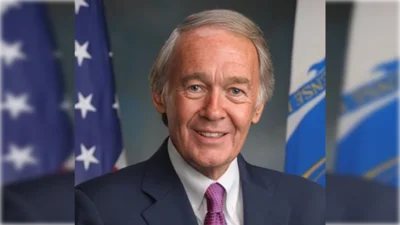North Carolina State Representative | North Carolina Gov
Congressman Richard Hudson, who chairs the Subcommittee on Communications and Technology, addressed members at a markup session in Washington, D.C., focusing on 28 bills aimed at streamlining broadband permitting. The legislative package is intended to remove obstacles to broadband deployment across the United States.
Hudson emphasized the importance of broadband access for daily activities such as work, education, healthcare, and personal communication. He noted that despite ongoing efforts, many Americans still lack reliable high-speed internet.
He identified complex permitting processes at federal, state, and local levels as significant barriers to expanding broadband infrastructure. According to Hudson, these hurdles increase costs and delay projects in communities that have already waited for improved connectivity.
The proposed legislation seeks to address these issues by introducing measures such as establishing clear timelines—referred to as “shot clocks”—for application reviews and capping fees imposed by state and local authorities. It also includes exemptions from certain environmental and historic preservation reviews for projects on previously disturbed lands. Additionally, the bills aim to ease deployment on federal lands and enhance coordination among federal agencies involved in permitting.
Hudson referenced prior actions by the Federal Communications Commission under former Chairman Ajit Pai that included similar reforms like shot clocks and fee caps. He argued that codifying these changes into law would ensure their longevity beyond regulatory shifts.
He linked the timing of this legislative effort with the upcoming implementation of the $42.45 billion Broadband Equity, Access, and Deployment (BEAD) program. Hudson expressed concern that without reforming permitting processes now, much of this funding could be delayed due to bureaucratic procedures.
“Good morning, and welcome to today’s subcommittee markup of legislation to streamline broadband permitting. We are considering 28 bills that reduce or eliminate barriers to broadband deployment so we can finally close the digital divide," said Hudson in his opening statement.
He continued: “For years, this subcommittee has discussed the importance of ensuring that every American has access to reliable, high-speed broadband. Work, education—even healthcare and checking in on loved ones—requires a broadband connection. Yet too many Americans still lack access to this essential service."
Hudson further stated: “Reaching the final unserved and underserved Americans requires funding, but it also requires permitting reform. Too often, broadband deployment is prevented or delayed because of burdensome, opaque and expensive permitting processes that exist at every level of government—federal, state, and local. These unnecessary obstacles not only increase costs for deployment but they also delay progress for communities that have already waited far too long."
“We need to address these challenges if we hope to close the digital divide once and for all," he added while outlining details about streamlined processes proposed in current legislation.
Hudson highlighted bipartisan support for five out of 28 bills under consideration: “Five of the bills we are marking up today are bipartisan. I am pleased that we have found common ground on these reforms." He called for continued cooperation across party lines toward closing what he described as a longstanding gap in national connectivity infrastructure.
“I want to thank my colleagues for their continued commitment to this issue and for their work developing these proposals," concluded Hudson.









